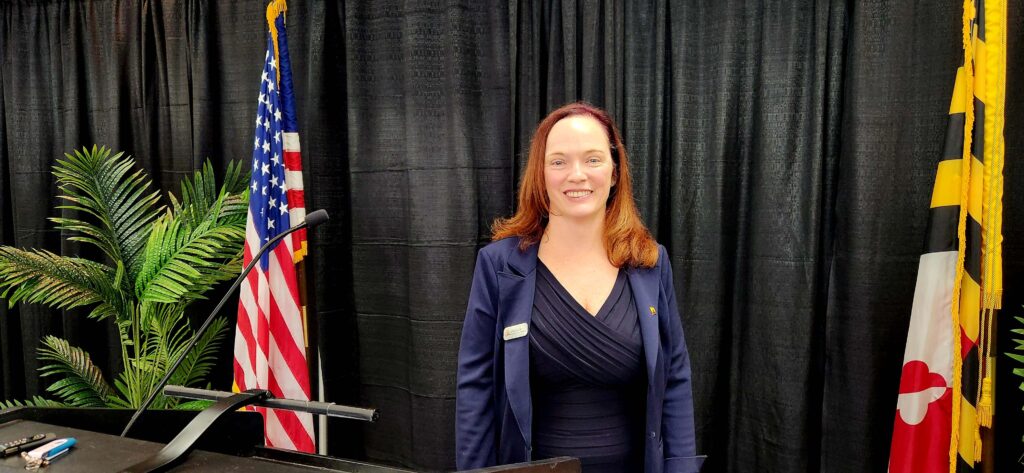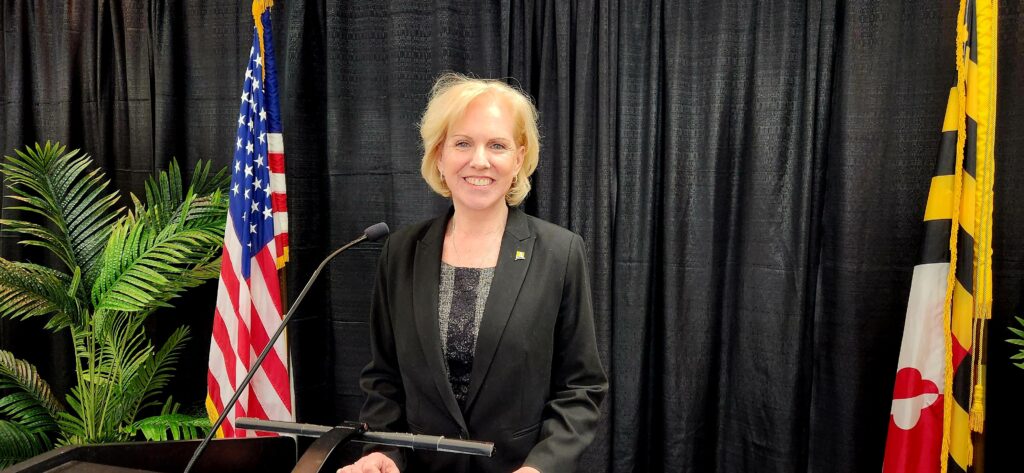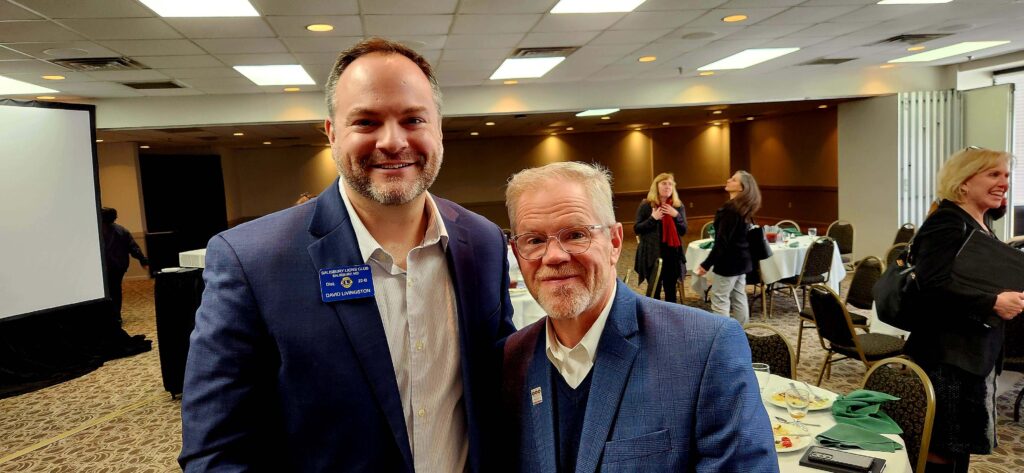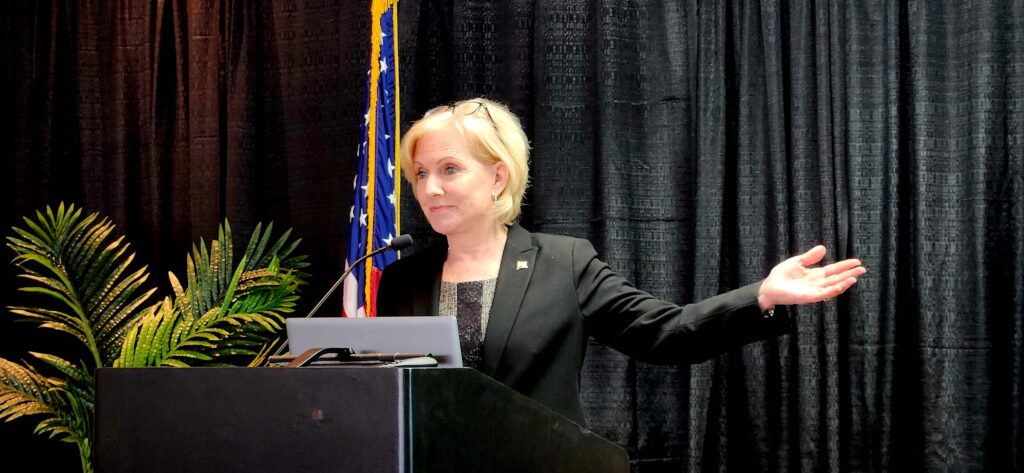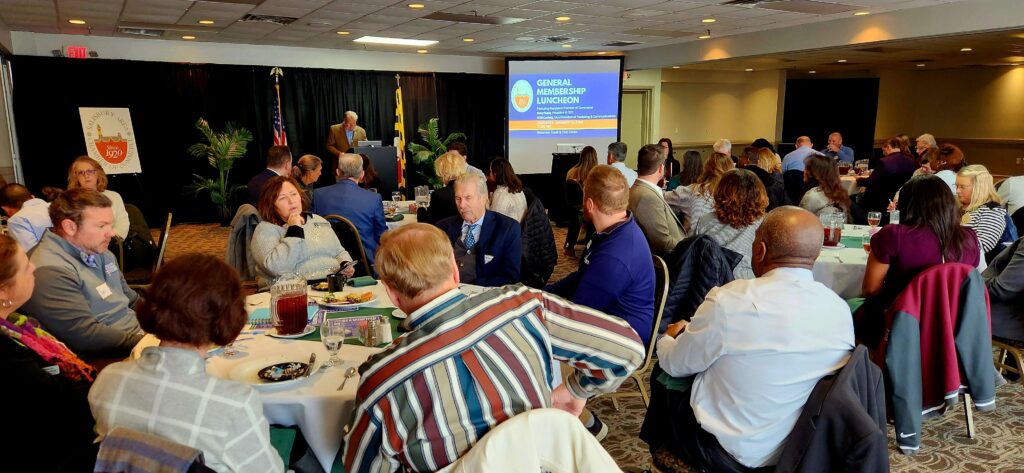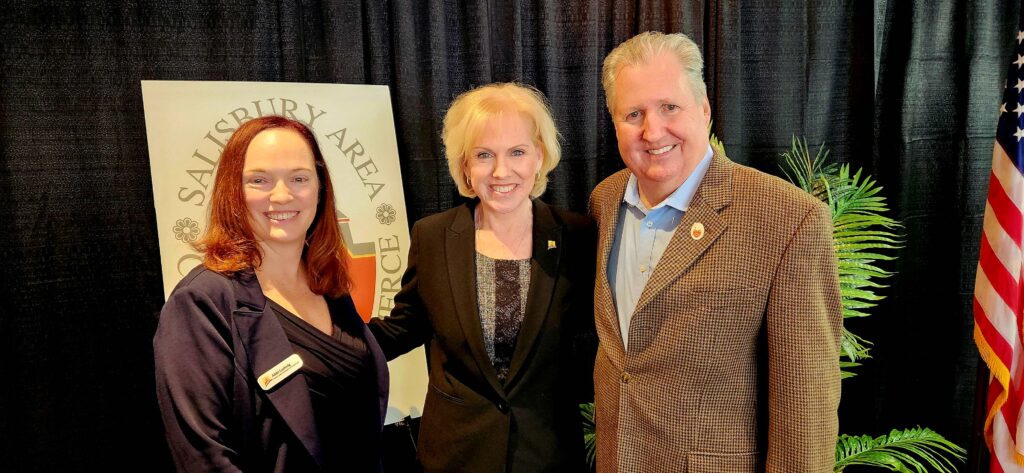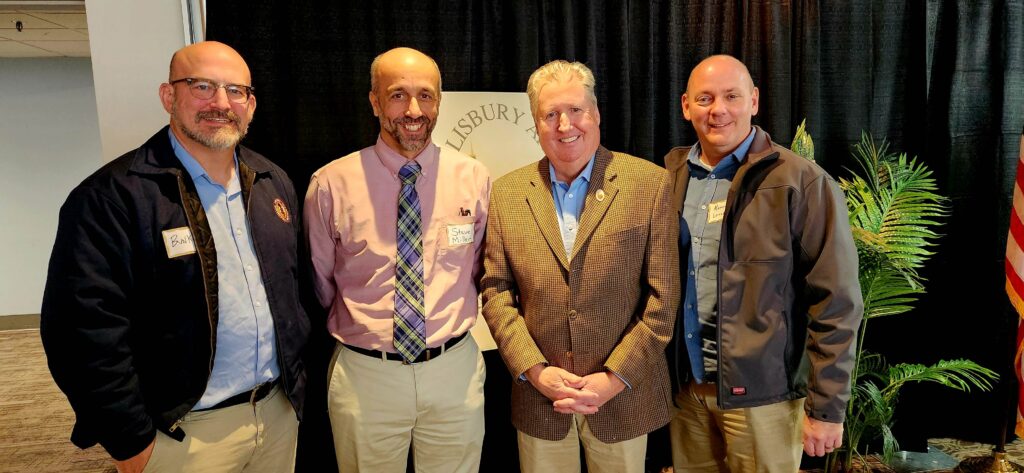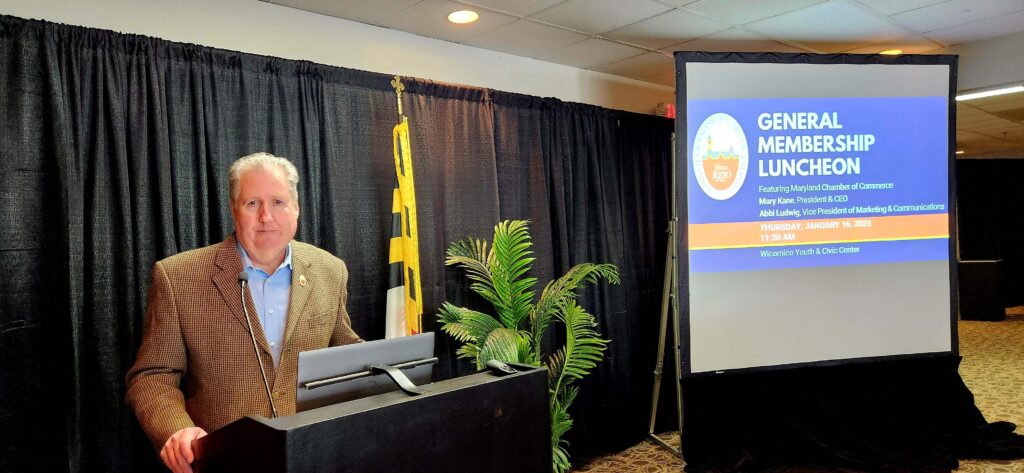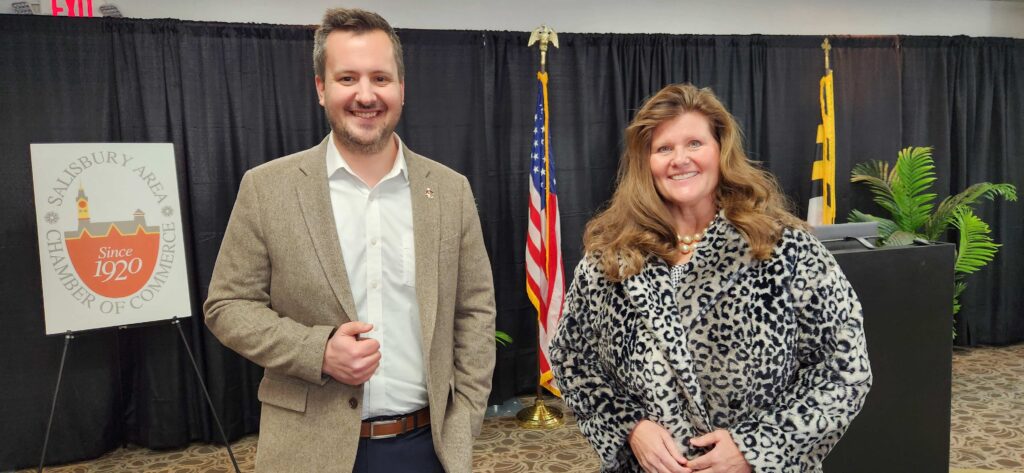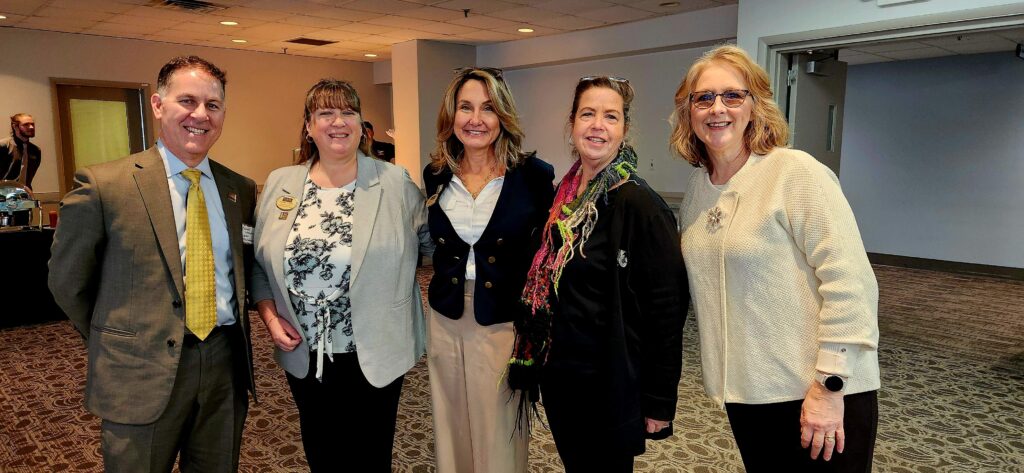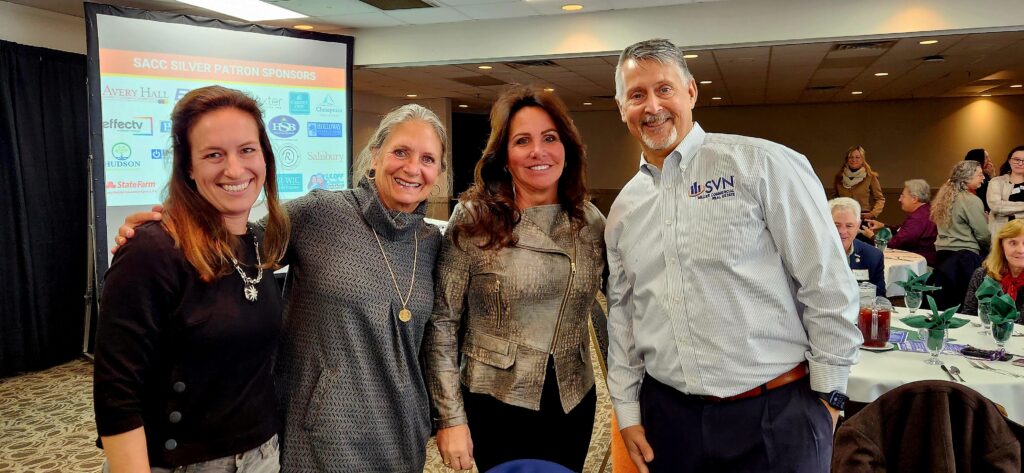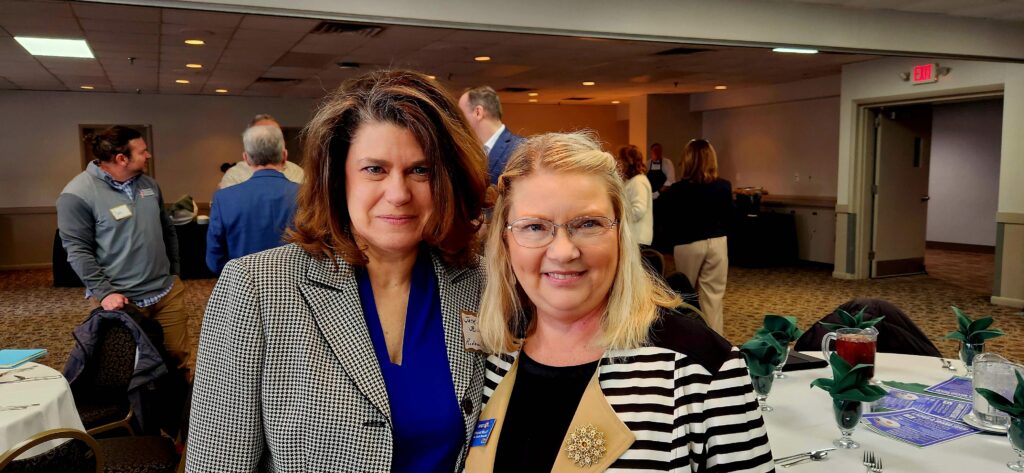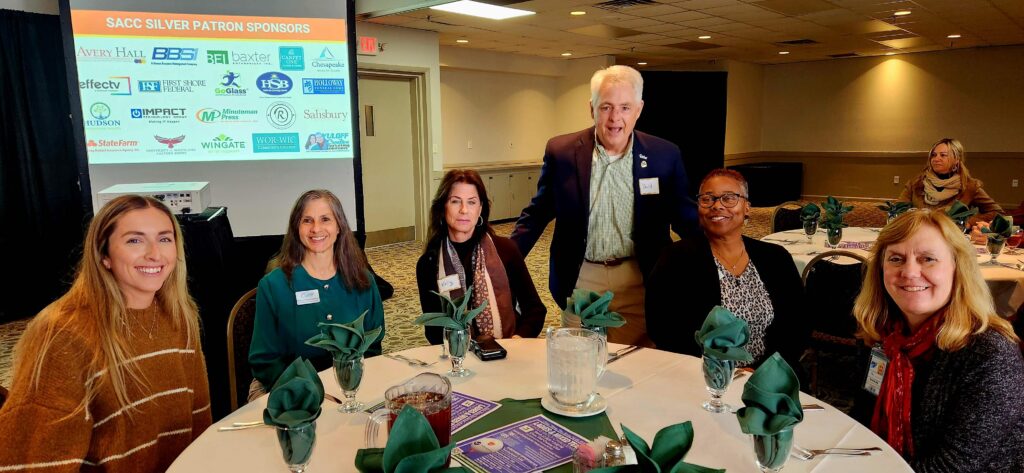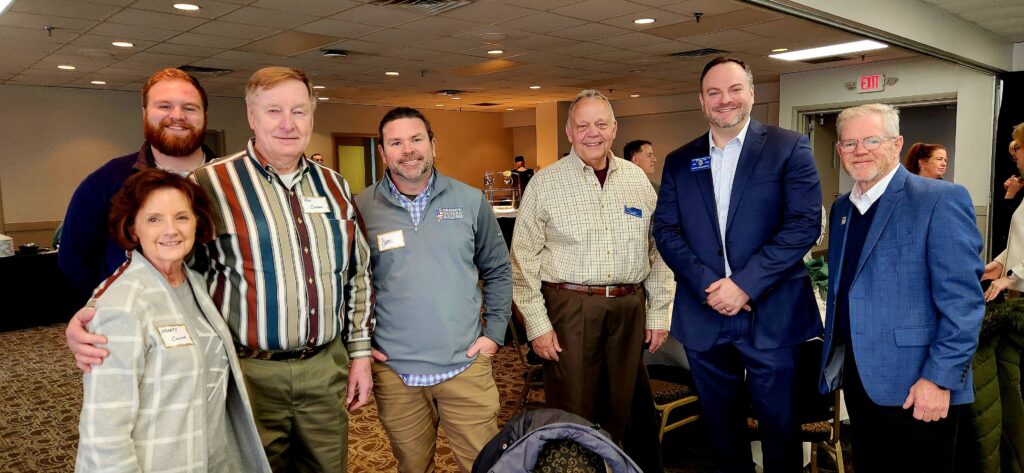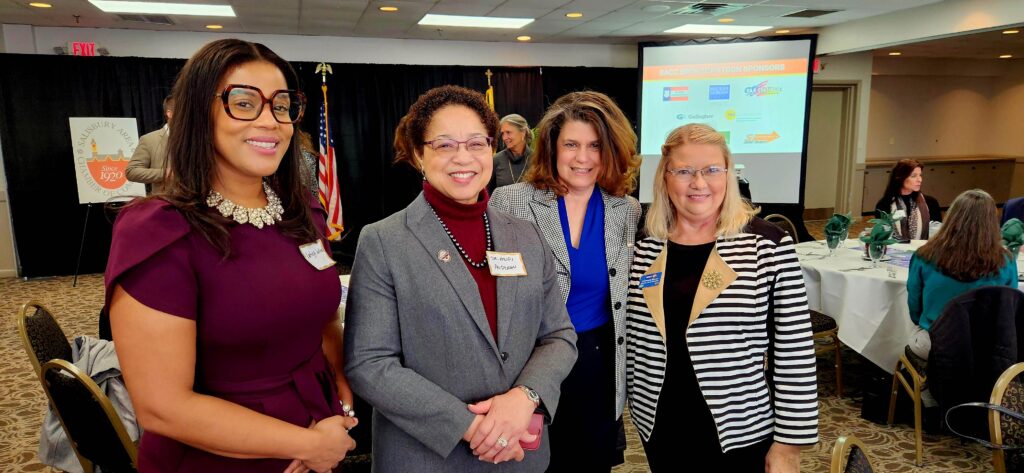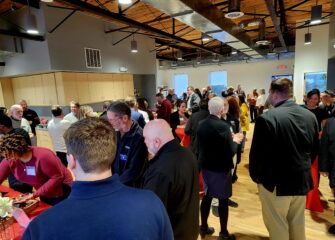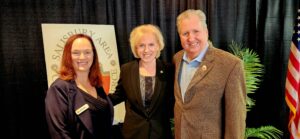
The Wicomico Civic Center hosted the January 16th SACC General Membership Luncheon, which featured presentations by Maryland Chamber of Commerce President Mary Kane and Vice-President of Marketing and Communications Abbi Ludwig.
Ludwig analyzed data comparing Maryland’s business climate with neighboring states and beyond. She examined various categories: business friendliness, population trends, tax environment, job growth, transportation, infrastructure, utility costs, internet access, and water/sewer services.
This comprehensive approach helps us understand where Maryland stands and where improvements can be made.
The State Chamber has been conducting these comparisons over the past three years. The 2024 rankings placed Maryland at number 31 of 50 states as the average for the data measures.
Ludwig commented, “Maryland’s ranking of thirty-first shows a three-year trend of moving lower, while Virginia and Delaware have both moved higher across all data categories.”
The data is alarming, as Maryland is number 49 nationwide in job growth. Ludwig stated, “Since 2020 through 2024, 118 thousand jobs have gone away in Maryland.”
Job growth is hindered because only 33 candidates are available to fill every 100 job openings in Maryland. The State Chambers’s next set of data comparisons will be released soon, and copies of the ‘Maryland Red Book’, a comprehensive guide to Maryland’s business climate and legislative priorities, will be distributed to all Maryland Senate and House members.
State Chamber President Mary Kane focused on the Chambers 2025 legislative priorities. Business taxes, childcare, transportation funding solutions, and climate tax policies are priorities.
Kane commented on business loss in Maryland: “The migration of businesses out of Maryland continues unabated. Our neighboring states’ elected leaders actively seek to lure businesses out of our state. Legislators must be held accountable for unfunded mandates and policies that rely on taxing our businesses to fund these mandates.”
Among the mandates Kane referenced is Maryland’s aggressive climate change goals.
“The 2035 climate goals are fiscally not doable; many of these clean energy goals will force Maryland businesses to seek locations in neighboring states.”
Kane applauded some pro-business reforms in Governor Wes Moore’s newly released FY 2026 state budget. “These are good signs and small steps in the right direction, but new taxes on businesses and Maryland’s highest earners are in the same budget.”
Kane mentioned the Trump administration’s target to cut Federal departments, which may impact the Maryland workforce and fiscal dependency on the Federal presence. “President Trump has bigger things to address, but Maryland leaders need to be careful not to poke the bear.”
The Salisbury Area Chamber of Commerce Legislative Committee advocates for businesses by reviewing and taking action on proposed legislation that could adversely impact businesses and organizations.
This committee works closely with the Maryland Chamber of Commerce in developing action plans to support, oppose, or take no position on proposed legislation during the 2025 Maryland General Assembly Session.
- L to R: Maryland Chamber of Commerce Vice-President of Marketing and Communications Abbi Ludwig, President Mary Kane, and SACC President/Bill Chambers

